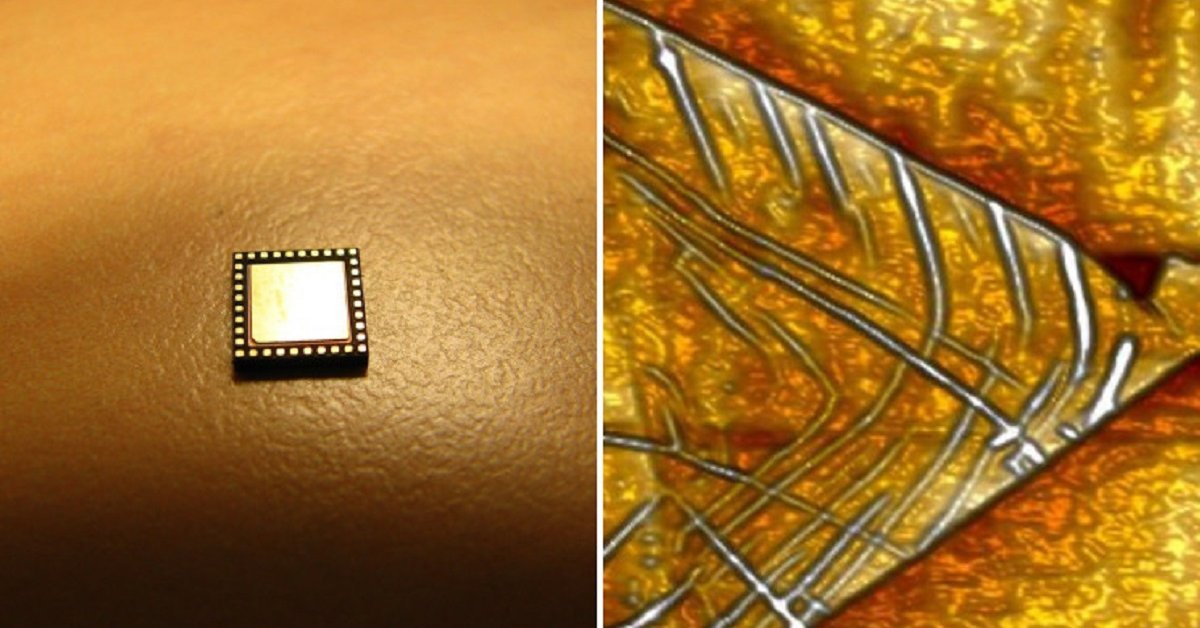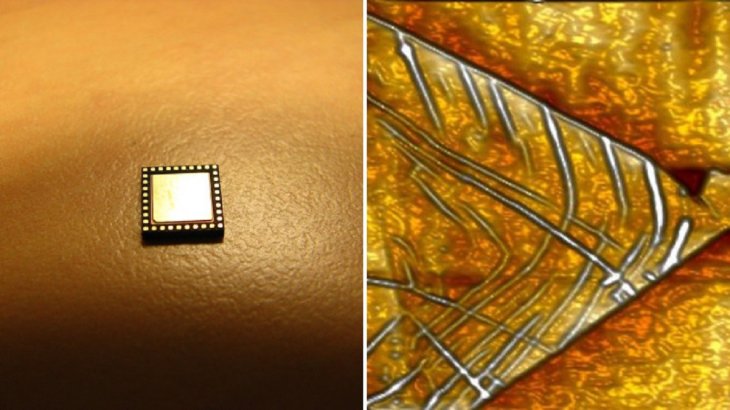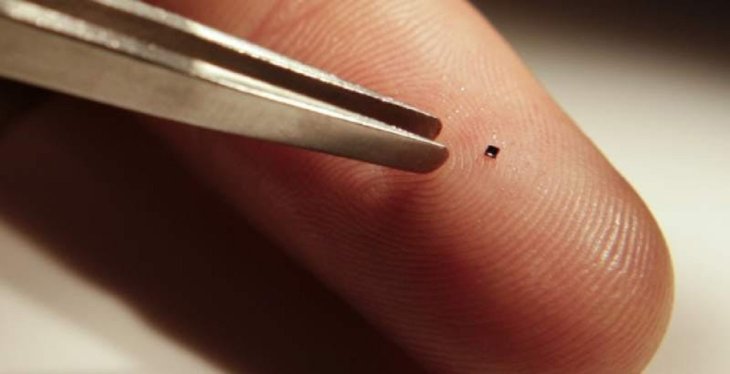This New 'Origami' Microchip Is 100 Times Faster Than Current Ones
Dhir Acharya - Feb 18, 2021

In a new method called “nano-origami,” physicists used graphene along with other 2D materials to make the smallest microchip in the world.
- This Dragonfly Plane Eliminates The Disadvantage Of Current Aircraft
- These Solar-Powered Sleeping Pods Will Help Thousands Of Homeless People
- Smartphones Can Detect The Next Pandemic, Here's How
In a new method called “nano-origami,” physicists from the University of Sussex, the UK, used graphene along with other 2D materials to make the smallest microchips in the world.
In this method, they created nano-origami by creaking kinks in nanomaterials like graphene, finding that when placed in this format, graphene acts as a tiny microchip. Crinkling the material, the research team discovered a way to reduce the size of the microchip by 100 times compared with the existing ones.

If you are wondering where this discovery can become useful, it’s in computing. Professor Alan Dalton, who worked on this study, said:
“Using these nanomaterials will make our computer chips smaller and faster. It is absolutely critical that this happens as computer manufacturers are now at the limit of what they can do with traditional semiconducting technology.”
“Ultimately, this will make our computers and phones thousands of times faster in the future.”

This type of technology is known as straintronics, where nanomaterials are used in place of electronics. In this study, the method provides more space in devices so more chips can be used. Dalton said that crinkling graphene can speed up everything we do with computers.
The best thing about this discovery is that there’s no need to add more foreign materials to a device to speed it up. Instead, they just have to use this method with nanomaterials, which also results in a faster, greener, more sustainable tech. According to the researchers, the technology does not require more materials and consumes less energy.
>>> Looking For A Rechargeable Wireless Mouse? Check Out This List
Featured Stories

Features - Jan 29, 2026
Permanently Deleting Your Instagram Account: A Complete Step-by-Step Tutorial

Features - Jul 01, 2025
What Are The Fastest Passenger Vehicles Ever Created?

Features - Jun 25, 2025
Japan Hydrogen Breakthrough: Scientists Crack the Clean Energy Code with...

ICT News - Jun 25, 2025
AI Intimidation Tactics: CEOs Turn Flawed Technology Into Employee Fear Machine

Review - Jun 25, 2025
Windows 11 Problems: Is Microsoft's "Best" OS Actually Getting Worse?

Features - Jun 22, 2025
Telegram Founder Pavel Durov Plans to Split $14 Billion Fortune Among 106 Children

ICT News - Jun 22, 2025
Neuralink Telepathy Chip Enables Quadriplegic Rob Greiner to Control Games with...

Features - Jun 21, 2025
This Over $100 Bottle Has Nothing But Fresh Air Inside

Features - Jun 18, 2025
Best Mobile VPN Apps for Gaming 2025: Complete Guide

Features - Jun 18, 2025
A Math Formula Tells Us How Long Everything Will Live
Read more

Mobile- Feb 16, 2026
Xiaomi Launches Affordable Tracker to Compete with Apple's AirTag
For users tired of ecosystem lock-in or high prices, the Xiaomi Tag represents a compelling, no-frills option that delivers core functionality at a fraction of the cost.

Mobile- Feb 14, 2026
Android 17 Beta 1 Now Available for Pixel Devices
While Android 17 Beta 1 doesn't introduce flashy consumer-facing changes yet, it lays the groundwork for a more robust and flexible platform.

ICT News- Feb 15, 2026
X Platform Poised to Introduce In-App Crypto and Stock Trading Soon
X has been laying the groundwork for this expansion.
Comments
Sort by Newest | Popular